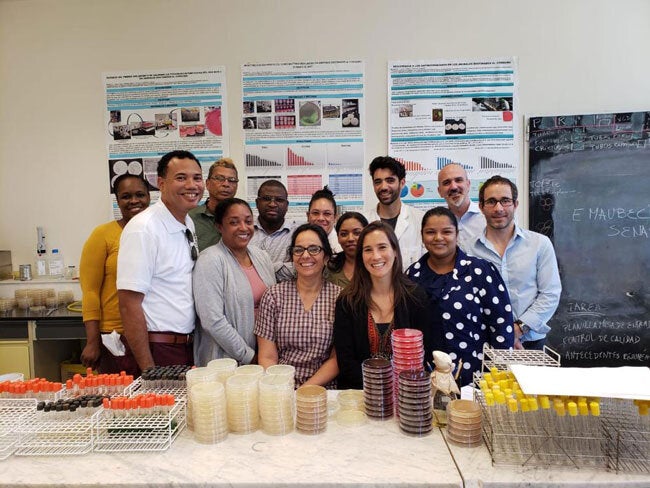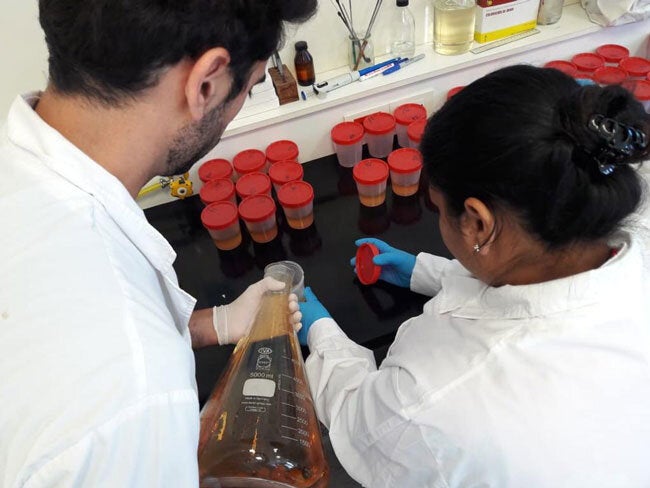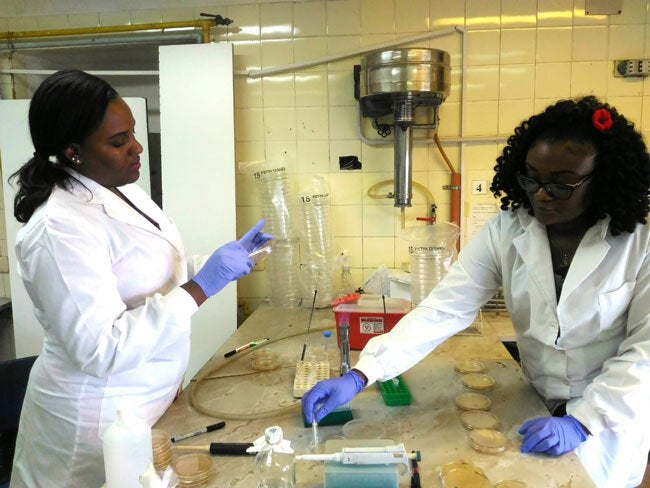The experience of the Cooperation among Countries for Health Development (CCHD) project between PAHO, Argentina, CARPHA, and 14 the CARICOM Member States, namely Antigua and Barbuda, Bahamas, Barbados, Belize, Dominica, Grenada, Guyana, Haiti, Jamaica, Saint Kitts, and Nevis, Saint Vincent and the Grenadines, Saint Lucia, Suriname, and Trinidad and Tobago, to strengthen capacity for AMR diagnosis and surveillance demonstrated the value of increasing horizontal collaboration between subregions.
The project strategies focused on building laboratory capacity for AMR detection and antimicrobial susceptibility testing, providing laboratory standards and strengthening quality assurance, expanding AMR surveillance to include animal health and food production under a One Health approach, and building a solid regional platform to facilitate the exchange of expertise, learnings, and knowledge.
During 2019-21, over 300 nurses, physicians, and laboratory specialists from 7 Caribbean countries were trained in specimen collection, 119 participants from 12 countries successfully completed a virtual training in AMR detection and surveillance, 12 countries joined a laboratory external quality assurance program led by the Malbran Institute in Argentina and 10 professionals from Barbados, Jamaica, Suriname, and Guyana were trained on-site at the various collaborating Argentinian institutions, among others.
Considering the significant impact that the COVID-19 pandemic has had on AMR to date and the recently approved Regional policy on “One Health: A Comprehensive Approach for Addressing Health Threats at the Human-Animal-Environment Interface (Document CD59/9), Caribbean States should continue to advocate for the prioritization and sustainability of the AMR response, while expanding its scope to achieve a comprehensive multisectoral One Health action.



